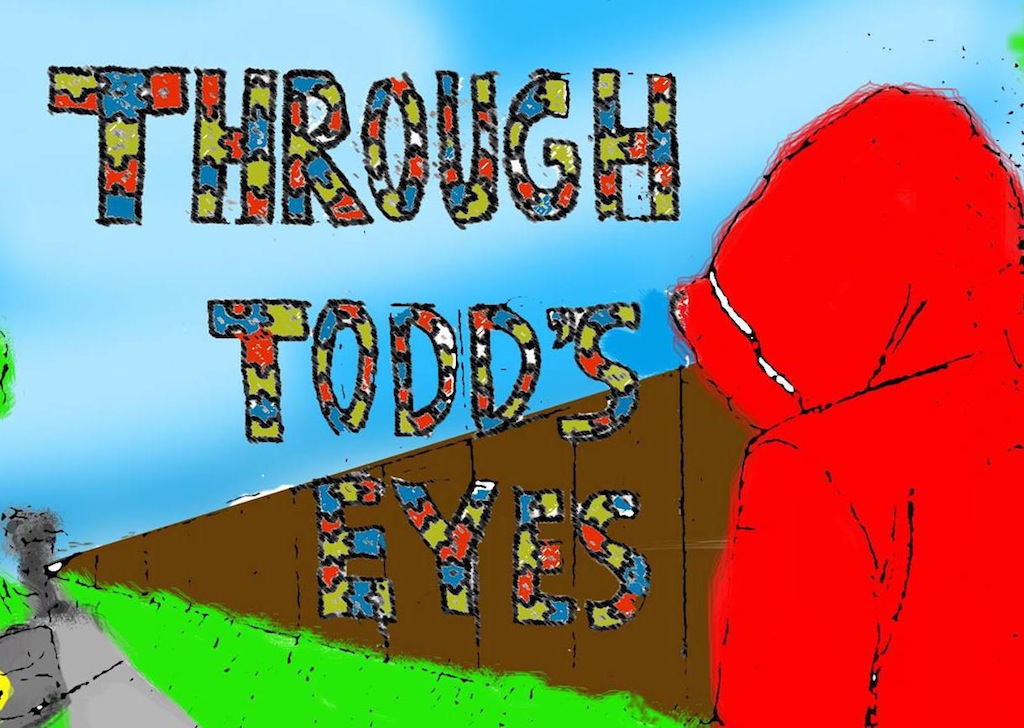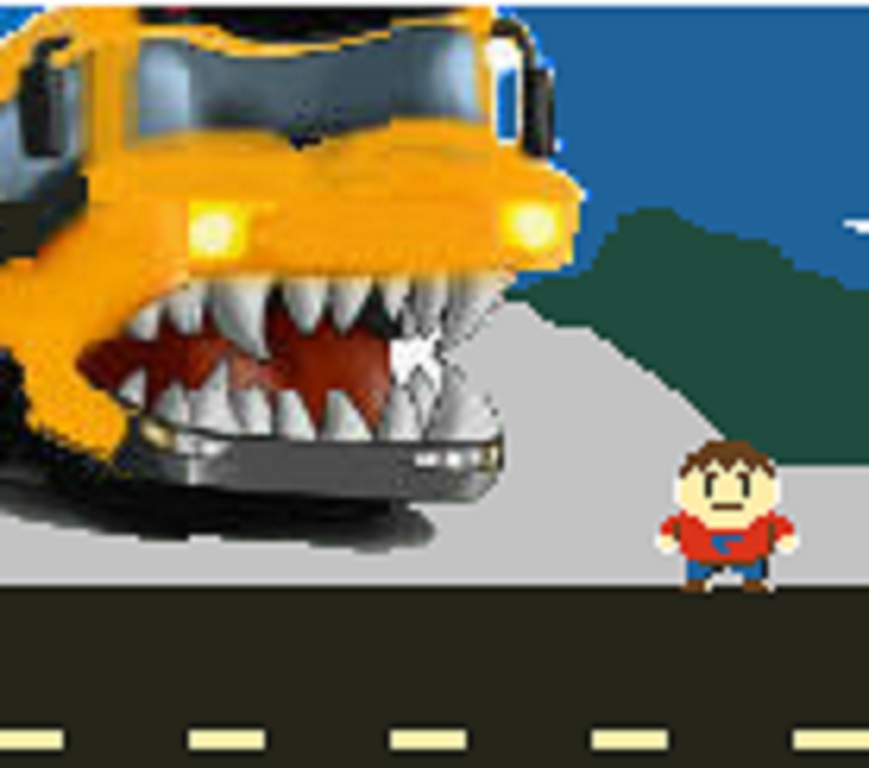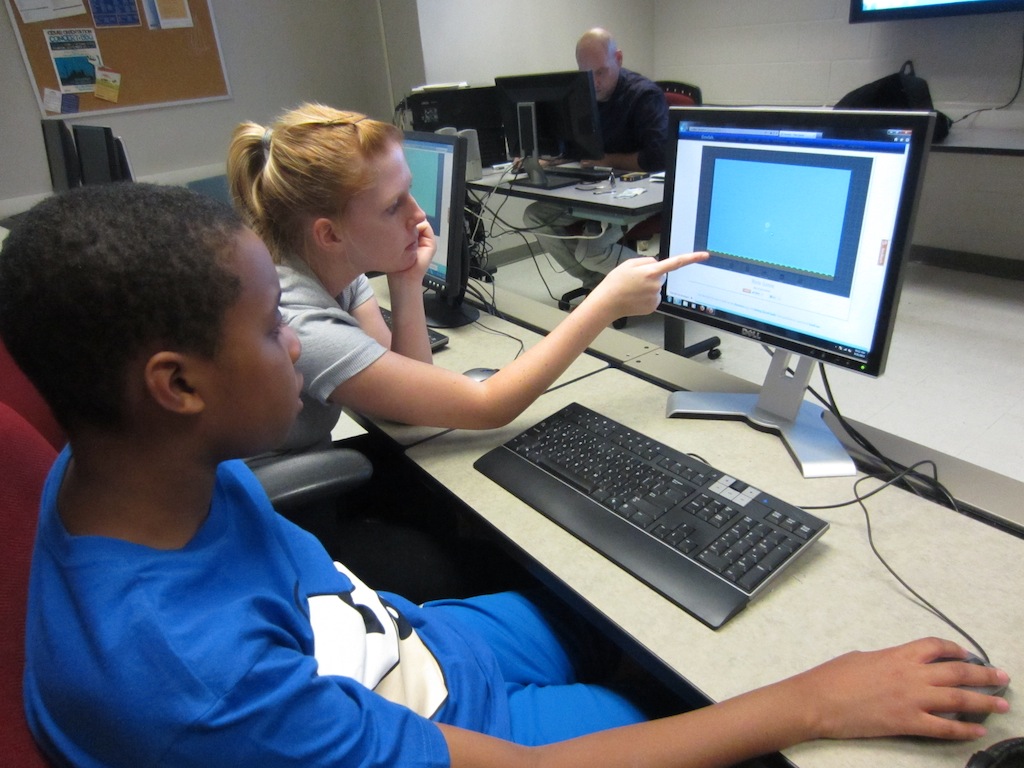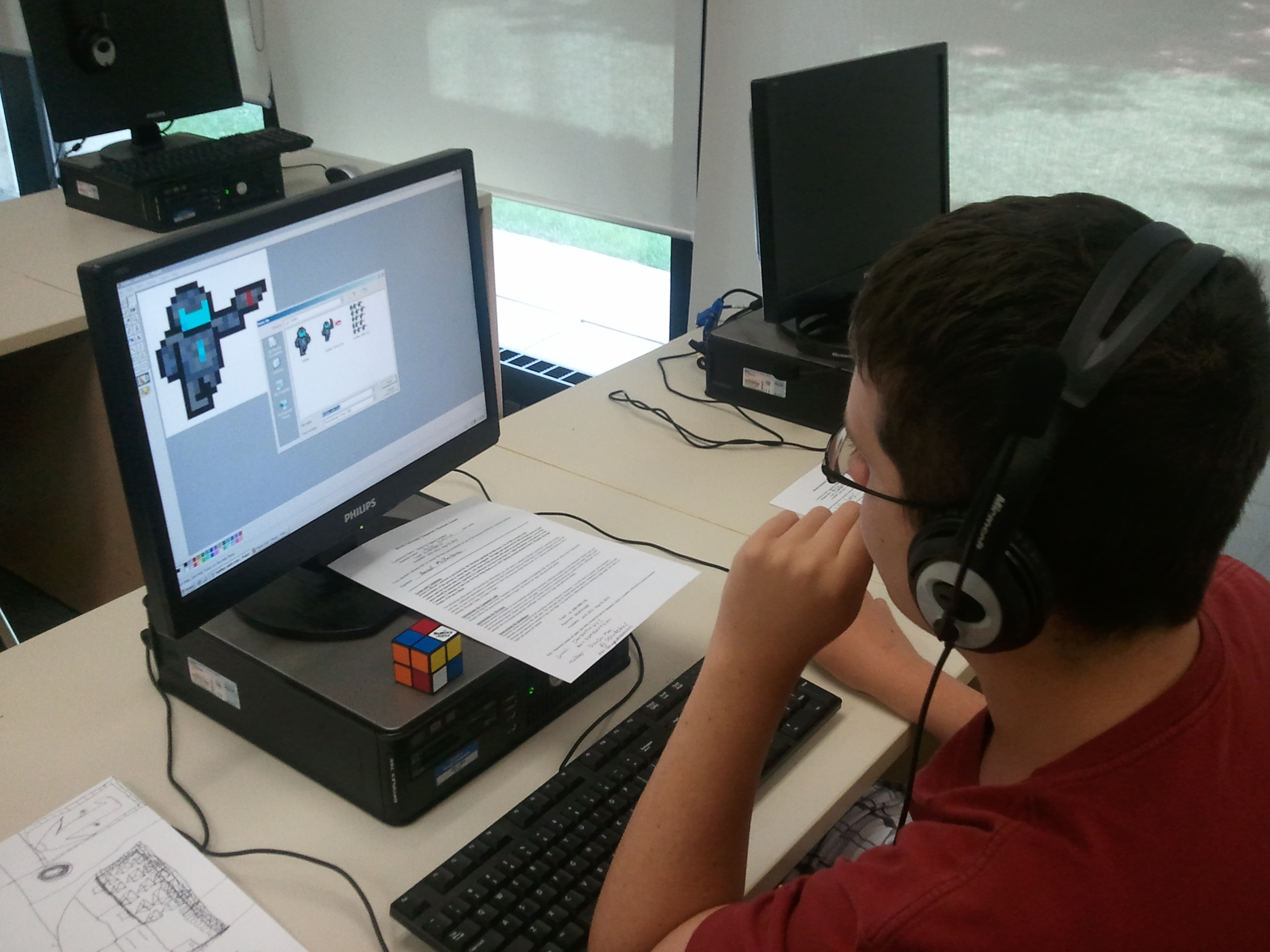Please support our coverage of democratic movements and become a monthly supporter of rabble.ca.
“It’s about creativity,” says Sarah Drew, who runs Every1Games, a company that provides a skills course in video game production activities along with social and professional development for teens with autism.
“Our participants want a chance to make something they can share.”
Drew, an astute and vibrant woman whose company is only 18 months old, was recently nominated for the RBC Woman Entrepreneur of the Year award. She’s already been listed this year as one of 45 future leaders of social change.
“We’re actually a social skills program first. The goal isn’t about the game, it’s about understanding the creative and development process first,” explains Drew.
Drew runs week-long workshops in addition to longer summer camps (up to four weeks long starting July 21) in two locales: Ryerson University’s Chang School for Continuing Education in Toronto and the Brock University Centre for Digital Humanities in St. Catharines.
The nexus of the idea came a few years ago when Drew — who was working at Autism Ontario leading activities for teens — was describing her studies at Brock’s interactive arts program to the group she was minding.
“Our participants asked me: how do I do this? How do I go to school?”
She eventually brought them to the university and showed them what happens during the program.
After graduating, Drew developed a module teaching video game creation along with social and business skills.
“It’s a medium of expression — just like a painter uses canvas and paintbrush to tell a story, a game designer does the same thing,” points out Drew. “You are able to tell stories through video games and express yourself.”

Her courses are designed to prepare teens or young people for the transition from either high school to post-secondary education or from that to a career. The ages of participants range from 12 to 25 years old.
“We have students in art programs at Niagara college,” said Drew. Essentially, Every1Games prepares students for work in video gaming and the arts.
‘Our participants don’t want to leave’
During the workshops, students are put into teams and brainstorm an idea for a video game.
“The game is made collaboratively. In one project, our advanced group decided to create a game about how it was to experience anxiety through a typical day like getting on the school bus and facing bullies.”
Drew says this group of teens created a successful prototype in five days during the March break.

“It’s an amazing feeling when at the end of the week, our participants don’t want to leave.”
In the summer sessions, people have the opportunity to complete one week or the full four weeks. Subsidies are available through Autism Ontario to pay for the courses.
“In four weeks, you have the opportunity to get more done. We do a combination of digital arts, traditional arts, software skills and game industry activities interspersed with the social and professional skills development.”
Drew brings in video game executives who talk about their industry in addition to providing feedback on the games that are developed.
“In this manner, our participants learn about networking too — how to approach people, present yourself and your work.”
Drew says the biggest thing teens take away is confidence and independence.
“We promote self-advocacy — that it’s normal to be different. Our participants are autistic people and not people with autism,” explains Drew. “Autistic people can’t be separated from their autism — it’s a part of who they are, autism is not a disease.”
Neuro-diversity is acceptance
Drew uses the word “neuro-diversity” several times when speaking. It’s an inclusive word indicating that people are born with different brains — something participants learn about themselves.
“It’s about having a sense of self and that’s when you’re able to sell yourself and able to make connections with people, foster friendships and relationships of all kinds.”

And Drew doesn’t confine her neuro-diversity initiatives to the classroom. She does a lot of outreach including an annual “Autism Friendly” conference (to be held again next January) where she invites organizations and businesses to join together with autistic people.
During the conference, autistic individuals share their experiences of the world and what it’s like for them to navigate everyday activities, including work. Drew eschews the kind of autism conference in which researchers — who often aren’t autistic themselves — discuss their findings.
“We do it through a social lens, not a medical lens,” said Drew.
This summer, she will also be taking her participants to LANATION — a professional gaming festival at George Brown College in Toronto at the start of August. Drew plans to have her students assist at the event and is creating a “multi-sensory environment” at the tournament, which has gamers compete for cash prizes.
“It’s been an amazing adventure,” Drew enthuses. “I was a student in the arts and humanities, I never saw myself doing this.”
Asked about how she feels when her students emerge from her workshops full of vim and vitality, she struggles to find words that go beyond “gratifying” and comes up with a phrase.
“It’s overwhelming awesome!”
June Chua is a Toronto-based journalist who regularly writes about the arts for rabble.ca.
Images courtesy of Every1Games.



